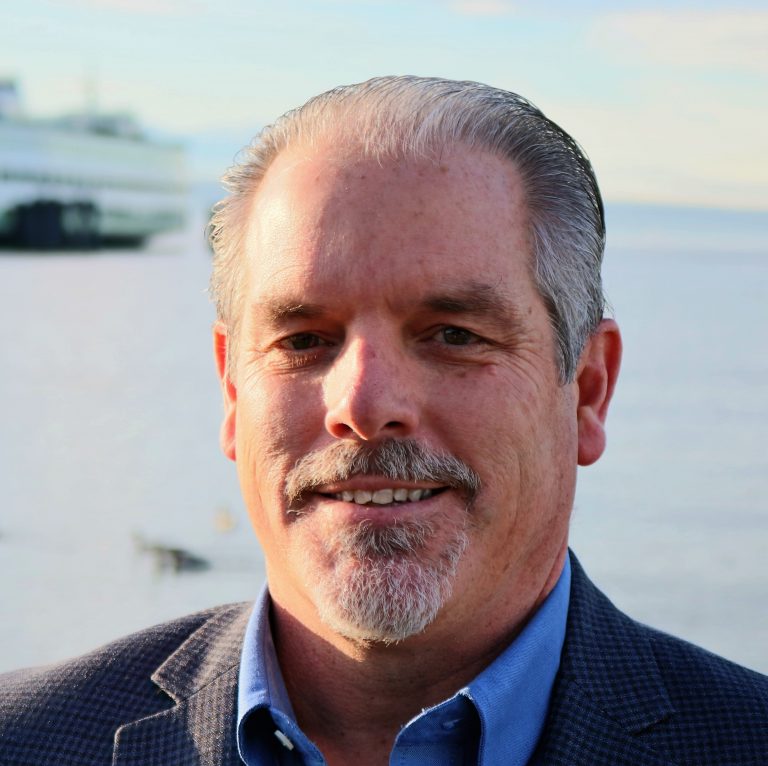CfPA Summit Provides a Vision for the Future
I’m not a financial advisor; Superpowers for Good should not be considered investment advice. Seek counsel before making investment decisions.
When you purchase an item, launch a campaign or create an investment account after clicking a link here, we may earn a fee. Engage to support our work.
On October 23, the Crowdfunding Professional Association hosted the 2024 Regulated Investment Crowdfunding Summit in Washington, DC. With a focus on policymaking and the resulting impact, speakers helped the global Streaming audience see the impact the model is having and its potential to change the country for the better. Below are video recordings of three key parts of the event, including one of the panel discussions in which I participated.
Remember, you can watch the entire event from start to finish here.
The CfPA Summit panel featured a panel discussion on tax credits for Regulation Crowdfunding investments, which showcased a crucial dialogue among experts. Moderated by Andrew Dix of Crowdfund Insider, the discussion featured Sherwood “Woodie” Neiss from Crowdfund Capital Advisors, Marne Marotta of Arnold & Porter, and me, Devin Thorpe, representing The Super Crowd, Inc.
The core proposal—a 50% tax credit for Reg CF investors up to $1,000—sparked vibrant conversation, with each panelist underscoring the potential economic ripple effects. This measure isn’t just a policy tweak; it’s a reimagining of how ordinary Americans engage in local business investments, inspired by successful models like the U.K.’s SEIS and EIS. In these programs, tax relief supports Innovation by reducing investment risks, bolstering startups, and catalyzing community Growth. Woodie highlighted that U.S. policymakers lag behind global peers who already incorporate tax incentives to spur economic activity through crowdfunding.
I outlined the transformative potential this tax credit holds. Picture a shift from approximately 300,000 investors generating $300 million in annual funding to tens of millions Investing, scaling the ecosystem to potentially $60 billion in capital. This vision redefines the future of business funding—envision communities owning local enterprises, spurred by a government nudge that lowers financial risk. Such an inclusive economic model democratizes wealth-building, empowering individuals to invest in ventures that echo their values and invigorate their neighborhoods.
Marne provided a legislative lens, explaining why tax incentives were excluded from the original crowdfunding bill—constraints around legislative cost justified their omission at the time. However, she noted that with upcoming legislative shifts, especially as parts of the 2017 Tax Cuts and Jobs Act expire, opportunities for revisiting tax credits have emerged. This is a timely moment for Congress to integrate fresh, growth-oriented incentives into the U.S. tax code, potentially energizing small business investments and community economies.
Woodie championed the bipartisan appeal of such tax incentives, emphasizing their alignment with job creation, entrepreneurship, and economic stimulus—objectives valued across the political aisle. He also pointed to data-driven insights: investment crowdfunding boasts lower-than-expected failure rates, countering fears that tax credits would merely funnel Money into doomed ventures. Instead, this policy would attract investment to promising businesses that lack access to traditional funding, leveraging the community’s vested interest in local success.
Andrew raised a fair critique: would incentivizing investment inflate valuations? Woodie acknowledged the risk but argued that market corrections and realistic benchmarks would mitigate valuation inflation over time. The U.K.’s experience supports this, as their schemes have driven substantial innovation and entrepreneurial output without unsustainable bubbles.
I concluded with a reminder of the underlying ethos: these incentives aren’t about propping up Wall Street or privileging the already wealthy. They are about enabling everyday Americans—those who may struggle to save for Retirement or invest meaningfully—to engage in building their local economies. It’s a policy with the power to shift cultural norms around investment and ownership, aligning financial growth with community stewardship.
In the end, the panel’s consensus was clear: the proposed tax credit is a simple yet profound step that could reshape the landscape of small business funding, aligning policy with broader social and economic aspirations. The CFPA’s pursuit of this initiative is a rallying cry for inclusive prosperity—empowering investors, revitalizing communities, and enhancing economic resilience through a market-driven approach.
At the CfPA 2024 Regulated Investment Crowdfunding Summit, Brian Christie, President of the Crowdfunding Professional Association, engaged in a fireside chat with SEC Commissioner Hester Peirce. The discussion covered key regulatory and operational challenges faced by the investment crowdfunding industry and delved into potential reforms aimed at fostering growth while maintaining investor protections.
Brian opened the dialogue by introducing the Commissioner and emphasizing her advocacy for a balanced regulatory approach that nurtures the growth of crowdfunding. Commissioner Peirce shared insights from her journey into securities law, highlighting her initial reluctance to work for the government and her eventual path to becoming a Commissioner. Her personal narrative underscored a deep commitment to ensuring that U.S. capital markets remain open, competitive, and inclusive for both investors and entrepreneurs.
The conversation quickly turned to issues affecting smaller businesses. Commissioner Peirce acknowledged that the SEC’s approach is often shaped by its focus on large, established companies, making it difficult to tailor regulations for smaller firms. This limitation, she noted, can lead to overly burdensome requirements for startups and smaller issuers. Brian highlighted challenges like the complexity of GAAP financials, suggesting that more flexibility could align the SEC with the more adaptable policies of agencies like the SBA. The Commissioner agreed that re-evaluating financial disclosure requirements for smaller businesses could reduce costs without compromising investor interests.
Advertising rules for Regulation Crowdfunding were another focal point. Brian pointed out that the current rules are restrictive, creating compliance issues that even seasoned players find difficult to navigate. Commissioner Peirce expressed openness to simplifying these regulations, stressing that any changes should ensure both feasibility for issuers and protection for investors. The conversation reflected a shared belief that rules should accommodate non-lawyers—founders and small business owners trying to engage investors.
A major theme was the pressing need to raise the offering limits for Reg CF and Reg A+. Brian mentioned legislative proposals to increase the caps, which could make these exemptions more viable and attractive to a broader range of businesses. Commissioner Peirce supported this idea, emphasizing that raising caps aligns with fostering capital access and considering recent inflation impacts. She reiterated that these adjustments could enhance the effectiveness of crowdfunding as a funding mechanism.
On the topic of enforcement and guidance, Brian and the Commissioner discussed how ambiguity can stifle growth. Commissioner Peirce noted that the SEC’s reliance on enforcement actions rather than clear guidance, especially in emerging areas like blockchain and tokenization, has led to confusion. She expressed hope that future legislative Clarity or court decisions could bring more certainty.
When asked about AI, Commissioner Peirce saw potential in its use for enhancing regulatory processes, such as reviewing filings more efficiently and reducing compliance costs for firms. The potential of AI, she suggested, could democratize access to financial advice and streamline filings, benefiting both the SEC and issuers.
Commissioner Peirce emphasized the importance of feedback from industry participants. She welcomed input on operational pain points, noting that direct communication helps inform discussions with other regulatory bodies like FINRA and Congress. Her candid approach underscored a desire for constructive dialogue to refine policies for mutual benefit.
In closing, Brian thanked the Commissioner for her transparency and openness, reinforcing the CfPA’s commitment to advocating for policy changes that promote a robust, investor-friendly crowdfunding ecosystem. The Commissioner’s willingness to listen, combined with Brian’s industry insights, painted an optimistic picture for ongoing regulatory evolution in favor of more inclusive and efficient capital formation.
Brian Christie’s keynote at the Crowdfunding Professional Association’s event explored the transformative potential of regulated investment crowdfunding, pushing beyond traditional Finance to embrace a model he termed “stakeholder equity.” This concept contrasts sharply with the conventional shareholder-first approach, epitomized by Milton Friedman’s profit-maximization theory from the 1970s, which has shaped corporate priorities for over half a century.
Brian detailed how the shareholder model, while profitable, often undermines long-term sustainability and community well-being, particularly when wielded through aggressive private equity tactics like leveraged buyouts. He noted the stark consequences in sectors such as healthcare, where private equity ownership correlates with poorer outcomes in hospitals and Nursing homes. These practices prioritize short-term gains and cost-cutting at the expense of employees, customers, and community welfare, leading to a scenario where business efficiency paradoxically breeds unsustainability.
Pivoting to solutions, Brian emphasized the promise of stakeholder equity as a counterbalance. This approach reimagines who owns businesses, championing a broader array of stakeholders—including employees, customers, and local communities, even recognizing the planet itself as a stakeholder. Unlike private equity, which centralizes ownership among a few investors, stakeholder equity fosters a distributed, more democratic ownership model. Here, investment crowdfunding plays a pivotal role, enabling ordinary people to pool resources and collectively own businesses that align with their interests and needs.
Brian illustrated how investment crowdfunding could repurpose private equity’s financial frameworks, replacing leveraged debt with crowdfunded capital. This democratizes business ownership and stabilizes enterprises through a committed, community-based investor base. Such shifts could lead to healthier long-term outcomes for businesses and local economies alike, challenging the notion that aggressive profit-seeking must dominate corporate operations.
He pointed out the untapped potential within existing business categories, such as small business acquisitions. Brian cited U.S. statistics, noting about $350 billion in small business transitions annually, many involving modest transactions averaging $100,000. Reg CF’s cap of $5 million and Reg A+’s potential $75 million (with advocacy aiming for $150 million) could empower communities to fund these acquisitions without relying on traditional bank loans or private equity, turning local businesses into community-owned assets.
To illustrate the model, Brian referenced Scharffen Berger, a boutique chocolatier sold by Hershey’s for roughly $20 million—an amount feasible for a community-funded buyout via Reg A+. With creative campaigns leveraging direct consumer engagement (e.g., QR codes linking product purchases to ownership stakes), crowdfunding could transform brands into shared ventures, fostering loyalty and robust balance sheets.
Brian’s vision urged the audience to rethink business ownership and align finance with broad, inclusive economic growth. He concluded with a hopeful call to action for students and the next generation of business leaders to adopt and champion this stakeholder-driven model. Crowdfunding, he argued, is poised to become a cornerstone of this new economic paradigm, potentially redefining how we build resilient, community-centered enterprises.
Support Our Sponsors
Our generous sponsors make our work possible, serving impact investors, social entrepreneurs, community builders and diverse founders. Today’s advertisers include FundingHope, AMIBA and the SuperCrowd Mastermind. Learn more about advertising with us here.
Max-Impact Members
The following Max-Impact Members provide valuable financial support to keep us operating:
Carol Fineagan, Independent Consultant | Lory Moore, Lory Moore Law | Marcia Brinton, High Desert Gear | Paul Lovejoy, Stakeholder Enterprise | Ralf Mandt, Next Pitch | Add Your Name Here
Upcoming SuperCrowd Event Calendar
If a location is not noted, the events below are virtual.
SuperCrowd Mastermind Group, twice monthly on the 1st and 3rd Thursdays at noon Eastern. This group is for entrepreneurs and small business owners interested in raising money from the crowd. Attend your first meeting free!
Impact Cherub Club Meeting hosted by The Super Crowd, Inc., a public benefit corporation, on November 19, 2024, at 1:00 PM Eastern. Each month, the Club meets to review new offerings for investment consideration and to conduct due diligence on previously screened deals. To join the Impact Cherub Club, become an Impact Member of the SuperCrowd.
Superpowers for Good Televised Live Pitch, November 13, 9:00 PM Eastern during primetime. At the event, judges will select their pick, and the audience will select the SuperCrowd Award recipient. Put the date on your calendar to watch it live!
SuperCrowdHour, November 20, 2024, at 1:00 PM Eastern. Each month, we host a value-laden webinar for aspiring impact investors or social entrepreneurs. At November’s SuperCrowdHour, Devin will explain six common investment types you need to understand before you can invest like a pro. Free to attend.
Community Event Calendar
Successful Funding with Karl Dakin, Tuesdays at 10:00 AM ET – Click on Events
Community Revitalization, Thursdays, 10:00 AM Eastern.
Main Street Skowhegan and NC3 Entrepreneur Finance Workshop Series, September 17 – November 19, 2023.
2025 Earthshot Prize Application window open through November 15, 2024. Apply today!
Asheville Neighborhood Economics, date TBD following impact of Helene.
If you would like to submit an event for us to share with the 8,000+ members of the SuperCrowd, click here.




























